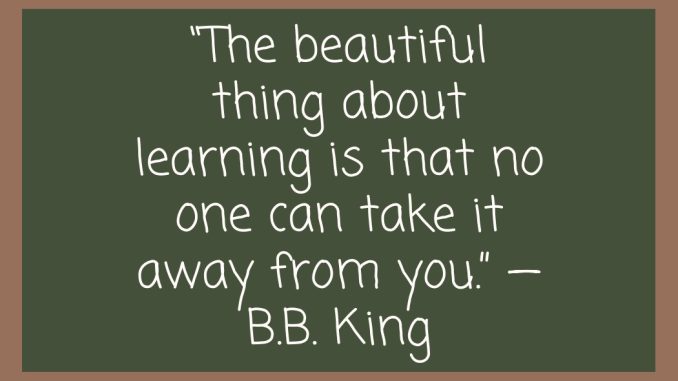
In the journey of education, students often face moments of doubt, fatigue, and uncertainty. The path to learning is rarely smooth, marked by challenges that test resilience and motivation. In such times, inspirational quotes can serve as powerful reminders of purpose and potential, offering encouragement that resonates beyond the classroom. These carefully crafted words have the ability to spark confidence, refocus priorities, and instill a mindset geared toward growth. Understanding why inspirational quotes matter to students—and how they can be effectively embraced—reveals a valuable tool for nurturing success and perseverance.
Inspirational quotes encapsulate timeless wisdom in a concise, memorable form. For students, these nuggets of insight often come from renowned thinkers, leaders, or even fellow learners who have navigated similar trials. The beauty of such quotes lies in their simplicity and universality; they cut through complexity and connect with core human experiences. For example, a quote emphasizing the value of persistence reminds students that setbacks are part of progress, not the end of the road. This reframing can transform frustration into motivation, encouraging learners to push through obstacles with renewed determination.
Moreover, quotes can act as mental anchors during stressful periods. Exams, deadlines, and performance pressures weigh heavily on students’ minds, sometimes clouding judgment and sapping energy. Here, a well-timed phrase can provide clarity and calm. Consider how a quote about the importance of mindset might help a student approach a difficult test not as a threat, but as an opportunity to demonstrate growth. This shift in perspective has tangible benefits, as research increasingly shows the link between positive thinking and academic performance. By internalizing inspirational messages, students develop habits that support resilience and focus.
Beyond the individual, inspirational quotes foster a sense of connection and shared purpose. Education is not a solitary endeavor; it thrives in communities where encouragement and role models abound. When students encounter quotes from figures they admire—whether historical icons or contemporary leaders—they see reflections of their own potential. This connection can be especially meaningful in diverse classrooms where backgrounds and challenges vary widely. Inspirational quotes create common ground, uniting learners around values such as curiosity, effort, and integrity. For example, a quote about the power of education to change the world can inspire a sense of mission, reinforcing why daily effort matters.
The effectiveness of inspirational quotes also hinges on their practical application. Quotes gain power when students integrate them into their routines or environments. Posting motivational phrases on study walls, including them in journals, or sharing them in study groups turns abstract words into daily affirmations. This practice encourages reflection and commitment, reinforcing a growth mindset. For instance, a student who starts the day reading a quote about perseverance may approach tasks with more patience and determination. Similarly, teachers and mentors who weave inspirational quotes into lessons can deepen engagement and spark meaningful dialogue about values and goals.
However, it is important to recognize that inspirational quotes are not magic solutions; their impact depends on context and individual receptivity. Not every quote resonates equally with every student, and sometimes overuse can dilute their meaning. The key lies in authenticity and relevance. Students are more likely to embrace quotes that reflect their current experiences and aspirations. This personal connection turns quotes from mere words into catalysts for reflection and action. For example, a student passionate about social justice might find particular inspiration in quotes about courage and standing up for what is right, fueling both academic and personal growth.
In addition to motivation, inspirational quotes can broaden students’ perspectives. Many originate from diverse cultures and historical moments, offering windows into different worldviews. Exposure to these ideas encourages empathy and critical thinking, essential skills for today’s interconnected world. When students explore quotes from philosophers, activists, scientists, and artists, they gain insights into the human condition and the power of ideas to shape society. This enrichment complements academic learning and nurtures well-rounded individuals prepared for complex challenges.
Consider the story of a student struggling with self-doubt who finds solace in the words of a great leader who once faced similar adversity. That connection can spark a turning point, demonstrating how challenges can be overcome through perseverance and self-belief. Such moments illustrate the transformative potential of inspirational quotes, which act as bridges between past wisdom and present action. In the fast-paced, high-pressure environment of education, these brief yet profound reminders can sustain momentum and ignite passion.
Ultimately, the value of inspirational quotes for students lies in their ability to distill complex ideas into accessible and motivating expressions. They remind learners that education is a journey filled with ups and downs, but also tremendous opportunity. These words of encouragement do more than uplift—they invite students to engage deeply with their goals, embrace challenges, and cultivate resilience. When embraced thoughtfully, inspirational quotes become companions on the path of learning, empowering students to envision and realize their fullest potential.
In conclusion, inspirational quotes serve as powerful tools for students navigating the demands of education. They offer clarity in moments of doubt, foster a sense of connection, and promote a mindset oriented toward growth and perseverance. Their impact is amplified when chosen and applied with authenticity, making them relevant and meaningful. For educators, mentors, and students alike, integrating inspirational quotes into the learning experience enriches not only academic success but personal development. In the end, these concise expressions of wisdom remind us all that the pursuit of knowledge is as much about character and spirit as it is about facts and figures.
Leave a Reply